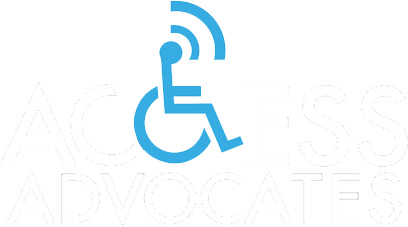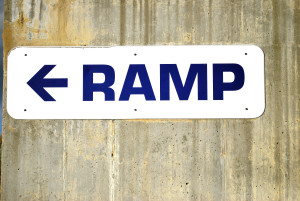When it comes to using a wheelchair, getting around can become a somewhat of a guessing game if you don’t know your rights under the ADA. Will this location be compliant? When it comes to publicly accessible buildings with wheelchair ramps, however, your safety is not only important, it’s the law!
At Access Advocates, we’re here to help you discover your rights and to put them into place. If you’ve found that a publicly accessible business’s building is, in fact, inaccessible to you, then you need to know that you have rights.
Below are some situations that you might encounter; here’s how to know when your rights are being met, or when you need to reach out to us for assistance in accessibility:
- Businesses built before 1992: The ADA’s compliance rule for businesses to include wheelchair ramps began with buildings created in 1992. If a business or commercial building was built earlier, owners are still under obligation to comply, if it is feasible. If you’re not sure whether or not a specific building is compliant, we are here to help. Even if a ramp isn’t feasible for the building in question, you should know that it is required to be suitable for wheelchair access and the building owner must provide alternate options for your enjoyment of the business.
- Older buildings, such as those on college campuses: In the recent case of Columbia University, many have found that some older academic buildings simply aren’t built for those with disabilities in mind. However, you should be aware that this is the law in the public sector (and highly recommended in the private sector). Public educational facilities are obligated to provide access to those who make use of a wheelchair.
- Publicly accessible private business: Know your rights when looking at any of the following–you should have access to these buildings in some form: the health industry, food stores and restaurants, theaters, malls, banks, hotels, and offices. Depending on their year of creation, and location, these businesses must be ramp-accessible or have acceptable alternatives for access.
Fore information on your wheelchair ramp accessibility rights, or to discuss a case, please contact us today.

